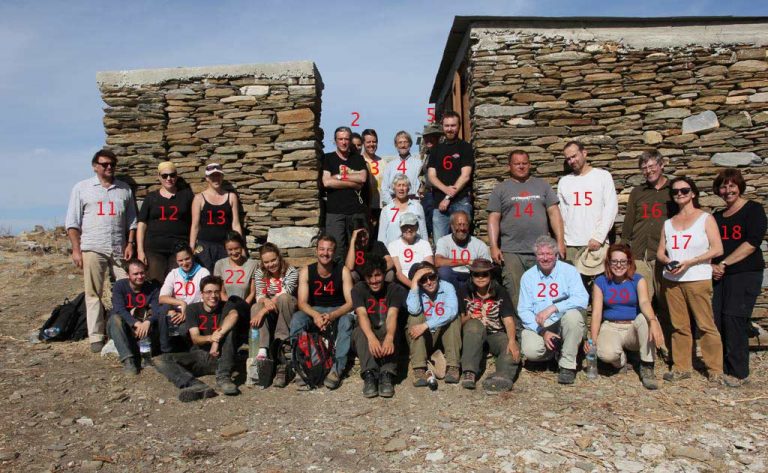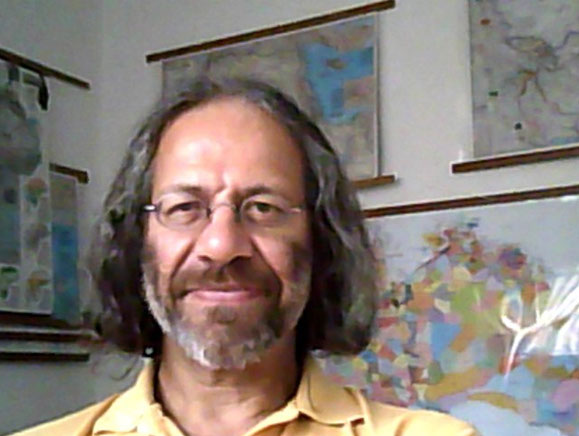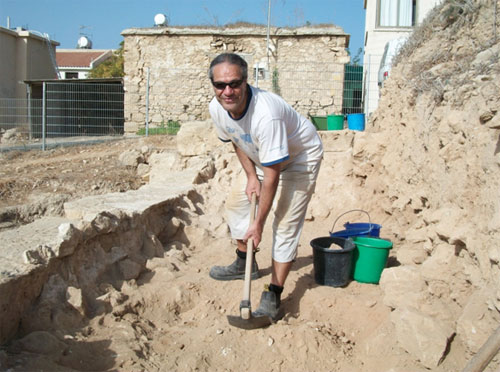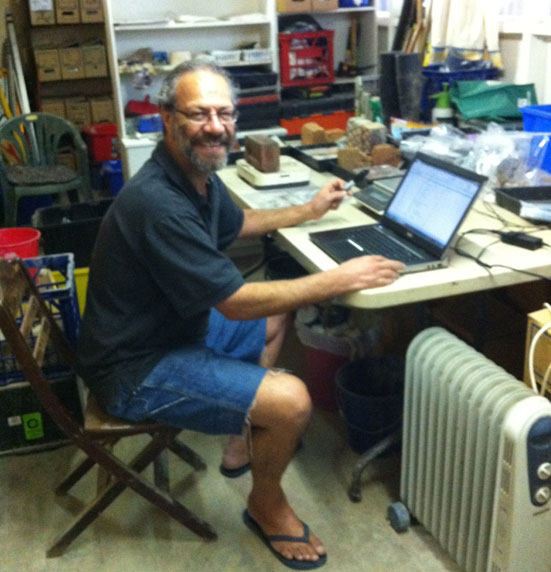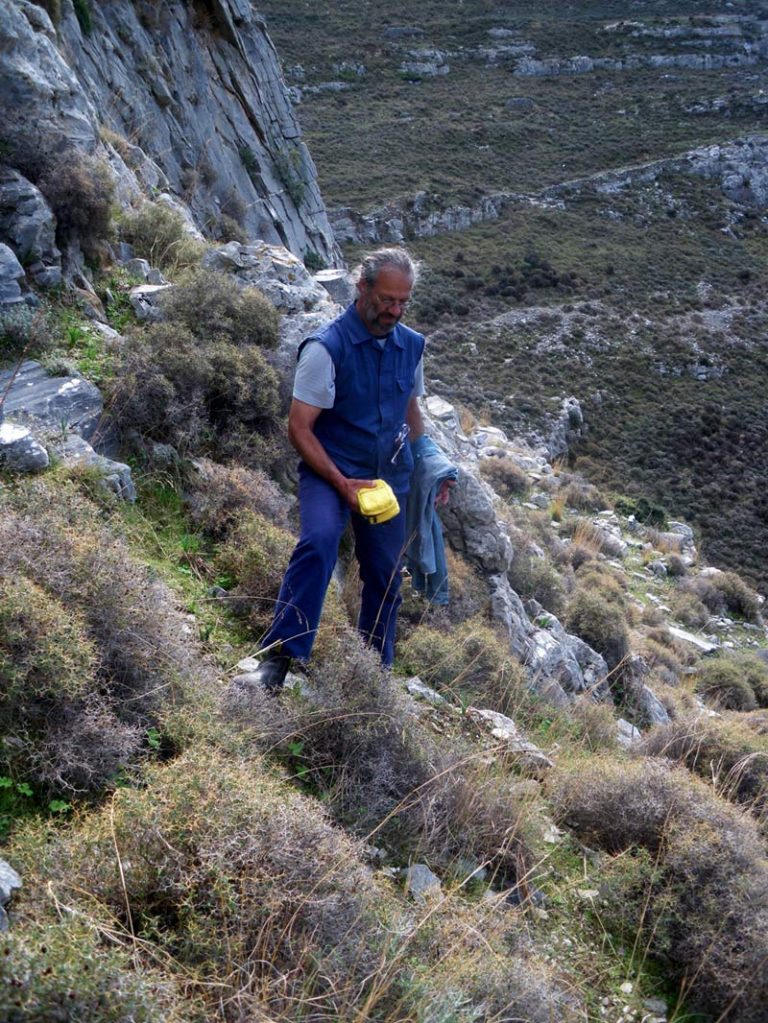Steven J. Vasilakis – Archaeologist
Why do you think archaeology is important?
The world we live in today has been fundamentally shaped by our past. Archaeology as a discipline offers significant material insights into the past complementing the historical record. More importantly, archaeological enquiry is well placed to investigate and demonstrate how human induced changes have influenced past societies.
When did you know you wanted to be an archaeologist, and what was it that made you want to be one?
I guess I would have to point the finger at my mum. At age five, she placed this oversized, heavy hardcover book in my lap which I later worked out to be called something like, ‘The Illustrated World of Archaeology.’ Sadly, I lost track of that book, but it gave me my first impressions of the Egyptian pyramids, Minoans, Babylon (and its Hanging Gardens), Troy, etc. I knew from then on that one day I’d become an archaeologist, I just didn’t figure it would take another forty years. Throughout my life I considered myself an archaeologist in progress, and to be honest, going back to study as a mature age student somehow confirmed that my perseverance to keep on learning and investigating was undoubtedly part of that progress. Ultimately, it reconnected me to the enthusiasm of that five year old.
What study did you do to become an archaeologist?
I did a BA, majoring in Classical Archaeology. In addition, to the classical-, near eastern-, and field-archaeology units, I took a number of anthropology and ancient history subjects. These subjects were essential, as I couldn’t justify studying the production and processes of material culture without having a clear understanding of the human cultures that produced the artefacts and left their mark on the archaeological record. I studied for a total of four years, concluding with an Honours thesis which I did on the ships of the ‘Sea Peoples,’ who some have come to label as the Vikings of the Late Bronze Age.
Here, I investigated and compared ancient and modern shipbuilding practices by examining a range of datasets including archaeological, iconographic, textual, and ethnographic evidence in an attempt to identify regional shipbuilding traditions to trace the origins of the ships of the ‘Sea Peoples.’This love for the sea has provided me with the basis for currently investigating the maritime cultural landscapes and seascapes of the Prehistoric and Protohistoric Aegean for my PhD. Having a seafaring background has allowed me to use my past experience to identify and complement my archaeological research in two areas: the production and perceptions of maritime cultural landscapes and seascapes among coastal communities, and the construction and maintenance of maritime cultural identity.
How long have you been an archaeologist?
I’ve only been an archaeologist for a couple of years, as I started as a mature age student several years ago.
What are some of the key jobs you’ve had?
As my archaeological career is in its infancy I can only share the key jobs that shaped and further inspired me to study archaeology. During the 80s, I worked for many years at sea on a variety of fishing vessels such as coastal and open sea purse seine boats, long liners, small netters, and on a few local ferry/charter boats in the Aegean and wider Mediterranean. I was impressed by the huge amount of archaeological sites one had access to from the sea. Nothing is comparable to coming on shore just on sunset and making a fire to cook your evening meal in the presence of ancient coastal structures. There, you would see these flickering shadows cast by the flames of the fire, bouncing off these ancient structures, turning the stone walls and columns into these intense bright red-yellow canvases. I guess, while my interest in the sea, seafarers, and seascapes, will continue to provide me with the direction of my research questions, archaeology will underpin and furnish me with the tools I need, to (hopefully) better understand the deep and complex relationship between humanity and the sea.
What skills or capabilities do you think are important to being a good archaeologist?
I’d have to say a good sense of imagination. Archaeology involves a lot of detective work using a diverse range of skills, e.g. being inquisitive, acute observation, analytical skills, mapping knowledge, cultural awareness, etc. So, I would be inclined to say that the more one applies lateral thinking to the focus of their investigations and on the evidence presented before them, the more likely they will be in a position to better understand and interpret the findings.
What advice would you give to someone interested in this career?
If you enjoy digging, reading, writing, and travelling, not all in that order of course, then archaeology would have to be one of the best career choices available. There is an incredible feeling when one discovers artefacts, ancient walls, mosaics, roads, coastal and under water structures, etc., as many archaeologists would testify. I think there are only a handful of jobs in the world that have the capability of bringing out the kid in us, bursting with that overriding infectious joy when one is in a state of true happiness.
What are some words you would use to describe your experiences as an archaeologist?
Awesome, riveting, inspirational, fascinating, laborious, therapeutic, content.
Is there anything else you would like to share with our readers?
It took a lot of effort and I guess courage to come back and study as a mature age student. The experience, however, was by far the most exhilarating and satisfying. The prospect of learning has no age barriers. Sharing my passion with other archaeological students made me realise how common interests bridge any age divide. Having said that, all this would not be possible without the heartfelt support and energy from my family and our deep connection to the sea.
